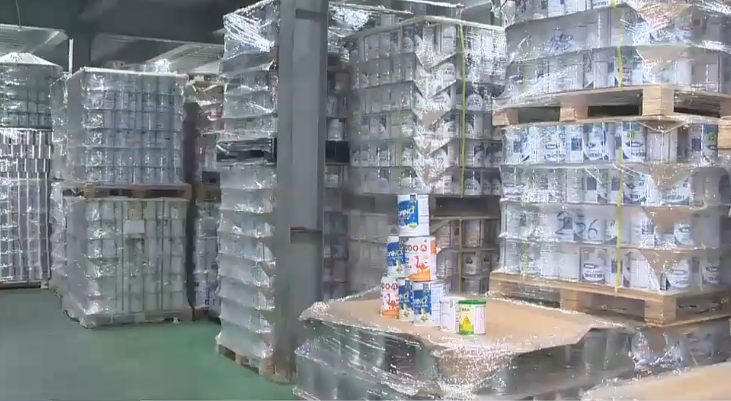Regarding the recently uncovered $20 million counterfeit milk production ring, Tran Huu Linh, Director General of the Domestic Market Development and Management Department under the Ministry of Industry and Trade, stated that the ministry did not license or directly manage the two violating companies.
These products fall under the Ministry of Health’s jurisdiction

The Ministry of Public Security recently busted a massive counterfeit milk production operation, involving nearly 500 billion VND (approximately $20 million) in revenue, centered on Rance Pharma International Pharmaceutical JSC and Hacofood Group Nutrition Pharmaceutical JSC.
Speaking with the press, Tran Huu Linh clarified that the Ministry of Industry and Trade (MoIT) only oversees conventional processed milk products, excluding those enhanced with micronutrients, functional foods, or pharmaceuticals with special nutritional content. Such products are currently regulated by the Ministry of Health.
Additionally, MoIT does not have the authority to issue business registration licenses to enterprises. This responsibility belongs to provincial Departments of Planning and Investment, in accordance with the Law on Enterprises.
“As such, MoIT did not license or directly oversee the products manufactured and sold by Rance Pharma and Hacofood Group,” Linh explained.
MoIT can only conduct inspections of these companies when violations fall within its legally assigned scope of responsibility.
Linh also noted that over the past four years, the Ministry has directed the Market Surveillance Authority to continuously monitor, coordinate, and inspect goods across all sectors, including milk and functional foods.
He emphasized that Rance Pharma and Hacofood Group are not subject to specialized oversight by MoIT and, under current law, the ministry cannot conduct routine or specialized inspections of their production and distribution activities.
Nonetheless, MoIT has consistently instructed market surveillance forces to monitor and control milk products in circulation as part of its broader regulatory responsibilities.
Business papers in order, violations discovered only after testing
Addressing concerns about how companies with wide product distribution managed to operate undetected, Linh explained that these businesses often submitted complete, legally compliant documentation to mask violations. In many cases, product violations were only revealed after laboratory testing. Moreover, there were no consumer complaints that would have triggered sampling and testing earlier.
Compounding the issue, these firms did not distribute products through official supermarket chains or retail networks. Instead, they used direct marketing tactics, slipping products into professional workshops, hospitals, and private clinics under disguised forms.
They also hired well-known public figures - celebrities, actors, and influencers - to promote and directly sell the products via platforms like YouTube, Facebook, and Zalo, making it difficult for authorities to track and inspect these activities.
Given the seriousness of the situation, MoIT’s Domestic Market Department will issue strict directives to local Market Surveillance Departments to intensify monitoring and inspections - especially at unofficial retail outlets, small vendors, e-commerce platforms, and social media channels, where counterfeit or substandard milk products are more likely to be found.
In parallel with on-site inspections, the Department will continue collecting consumer feedback and work closely with the health sector (on food safety and quality) and the agriculture sector (on raw milk and agricultural products). This interagency effort aims to prevent the circulation of counterfeit or unsafe milk on the market.
MoIT is currently conducting a comprehensive review of its commodity circulation management related to milk, focusing on identifying post-distribution loopholes.
The ministry intends to propose enhanced interagency coordination mechanisms to increase the effectiveness of inspections, enforcement, and the crackdown on false advertising and food safety violations.
Tam An